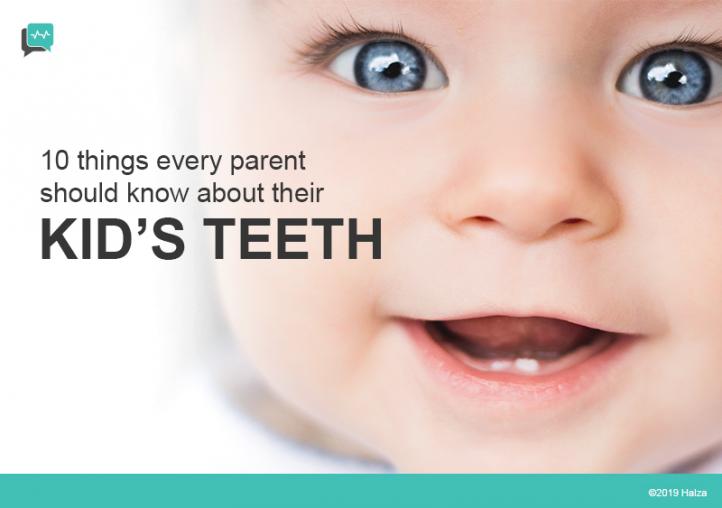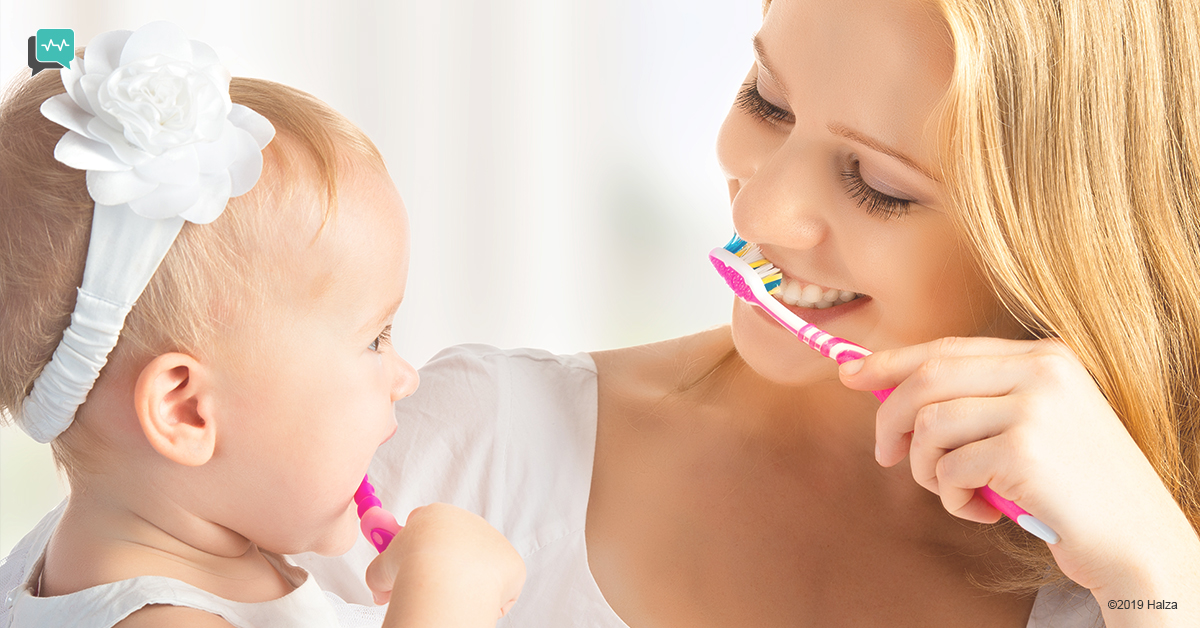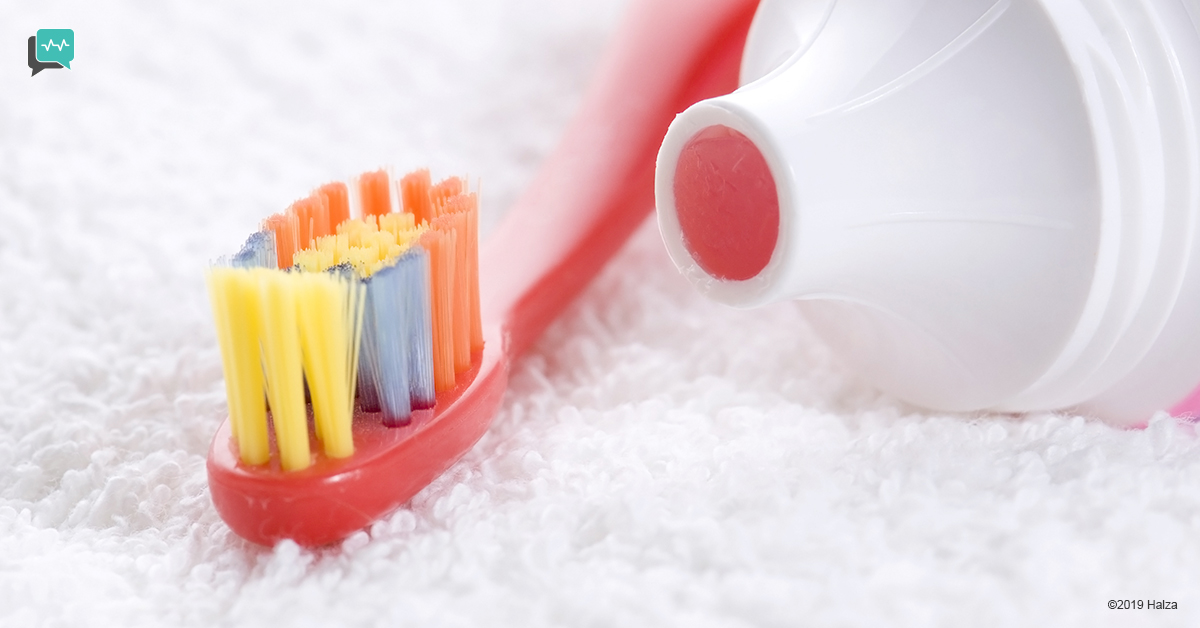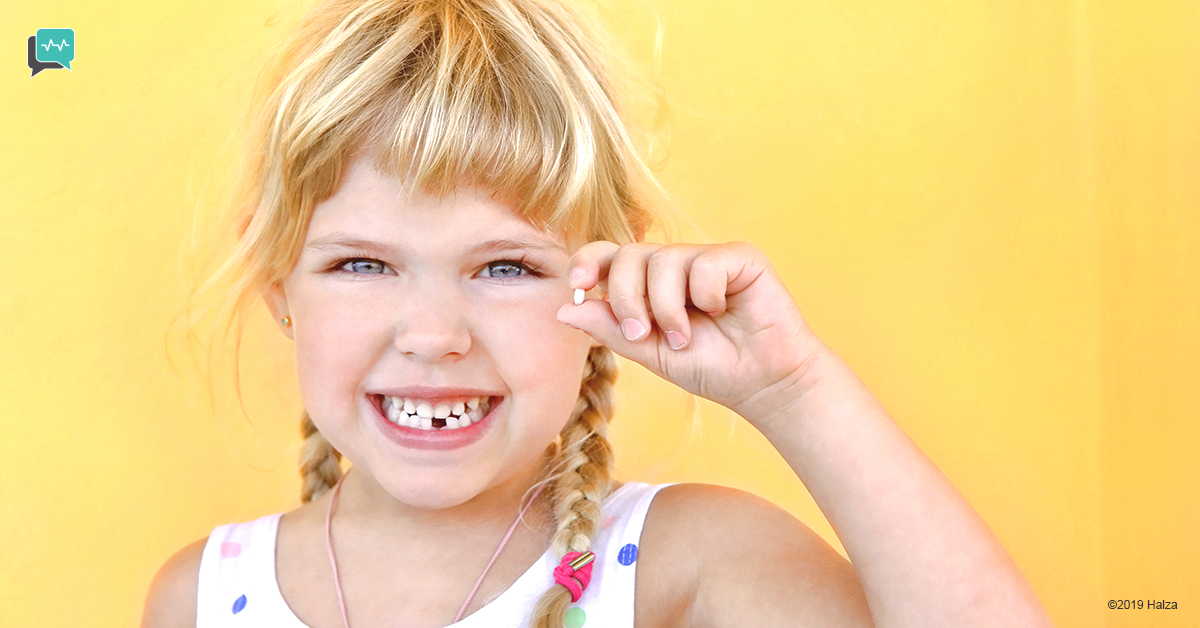10 Things Every Parent Should Know About Their Kids’ Teeth

Our teeth are important, especially so as kids.
Besides eating, teeth are essential for speech, forming the structure of the face, and keeping space for adult teeth to grow.
Baby teeth, or deciduous teeth, play a role in speech development. Many words contain sounds that involve our tongue and lips interacting with our teeth. When children learn to speak, the proper pronunciation is important, which is why having properly developed teeth is essential.
Taking good care of baby teeth can prevent tooth decay and the resulting infection, discomfort, or damage to the permanent teeth below.
Parents must ensure their child practices good dental hygiene and receives proper dental care.
Here are 10 important child dental care suggestions for every parent.

1) Schedule dental appointments early
As soon as your child’s first tooth makes an appearance, it’s time to pick up the phone and schedule an appointment. Organizing a visit within six months of the tooth growing, and no later than your child’s first birthday, is key to having a lifetime of good dental health.
Getting your child used to visiting the dentist early could also mean fewer problems for yourself, as experts recommend bringing children for a check-up every six months. Feel free to ask your dentist how often you should bring your child for a visit!

2) Prevent prolonged exposure to sugary foods and liquids and avoid tooth decay
It may be cute to let your baby fall asleep with a bottle in its mouth, but this only paves the way for tooth decay. As long as teeth are visible through the gums, without proper dental care, there is a possibility of decay. Prolonged exposure of your child’s teeth to sugary liquids like sweetened water, fruit juice, and even store-bought milk, breast milk or formula can cause tooth decay.

3) Speak to your dentist if thumb sucking starts to affect tooth alignment
Thumb or pacifier sucking is a natural reflex. Many infants and young children suck on a variety of objects for a sense of security and to fall asleep. However, the frequency, duration, and intensity of sucking can determine whether dental problems occur.
While these habits should usually stop between the ages of two and four, prolonged sucking past this age might impact oral development.
A child’s sucking habits can affect the proper growth of teeth. Passive thumb sucking, where the thumb is merely resting in the mouth, is less likely to disrupt tooth alignment than vigorous thumb sucking, as there is less force placed on the growing teeth.
If you notice that these habits affect tooth alignment, you should reach out to your dentist for advice.

4) Teach your child the proper way to brush their teeth
As soon as your child’s teeth start to appear, you can begin to brush their teeth with a baby toothbrush and some water. At the age of two, if your child knows to spit, not swallow, the toothpaste, you can start brushing with a pea-sized amount of fluoridated toothpaste.
Brushing your child’s teeth shouldn’t be hard. Get the most out of brushing by following these steps:
a) Position your child such that the inside of their mouth is visible
b) Place the toothbrush against the gums
c) Gently brush back and forth in short strokes, making sure to brush the whole surface of each tooth
d) Don’t forget to brush the tongue – this helps freshen the breath and remove bacteria
Make brushing fun by getting your child a toothbrush in their favorite color, or with their favorite character on it!

5) Fluoride helps prevent tooth decay
In the past few decades, tooth decay has decreased significantly, thanks to the mineral, fluoride.
Fluoride comes in two forms.
The first, topical fluoride, strengthens existing teeth and makes them more decay-resistant, particularly significant in childhood when teeth are still developing. It also helps repair areas already affected by acidic exposure.
The second, systemic fluoride, is ingested and becomes a part of tooth structures. It also provides topical protection because fluoride is already present in saliva, which continually coats teeth.
You can find topical fluoride in toothpaste. Systemic fluorides can be found in dietary fluoride supplements and fluoridated water, which provides both topical and systemic benefits for preventing tooth decay.

6) Kids can floss too!
Once your child’s teeth begin to touch one another, plaque and other bacteria may be hard to remove with just brushing. To prevent cavities between the teeth, you should teach your child to floss daily. Here are some tips:
a) Take about 30 cm, or 18 inches, of floss and wind most of it around both middle fingers. Hold the floss with the thumbs and index fingers and use a gentle, back-and-forth motion to guide the floss between the teeth.
b) Curve the floss into a C-shape and guide it into the space between the gum and tooth until you feel resistance. Gently scrape the floss against the side of the tooth. It’s important to be gentle to avoid gum damage.
c) Do the same for each tooth.
Flossing can be tricky for a child and they may need your assistance for some time. Check with your dentist for suggestions to help make flossing easy, or even fun.
7) Know when your child is ready to brush their own teeth
Children should have the coordination to brush their own teeth from when they are around six years old. You should still supervise your child while brushing until they are at least eight years old to make sure they spit the toothpaste out and to help when necessary.

8) Baby teeth will fall out naturally
Baby teeth should start falling out naturally at around age six. By your child’s ninth birthday, they should have about 12 permanent teeth. All milk teeth should fall out by the age of 12.
9) Eating a balanced diet contributes to healthy teeth
Ensure your child’s diet consists of adequate fruit and vegetable servings, which can protect against oral cancer. Avoiding added sugars also helps prevent the development of tooth decay and premature tooth loss.

10) Have a chat with your child to educate them on the importance of dental health
If your child is into sports, teach them to protect their teeth.
Highlight why they should use mouth guards, especially for contact sports. If they find generic mouth guards uncomfortable, have your dentist make a customized one to fit their mouth better.
For sports like skateboarding, baseball, or skiing, helmets are also necessary to keep teeth safe. Reminding your child to play safely with friends is another way to prevent mouth injuries from occurring.
If your child is constantly biting on hard objects, educate them on what this behavior does to their teeth.
More than just helping your child achieve a wonderful smile, keeping their teeth healthy and free from oral disease also serves a more functional purpose. Children eat better, talk better, and can even be more confident with a set of healthy, well-kept for teeth. Practice these tips today to pass on good dental hygiene habits to your child!
–
How Halza Helps
Parenting young kids can be a handful. There are so many things to remember to do and not enough hours in the day to complete it all. Let Halza take a load off.
Introducing our newest feature, Dental. You can now update and have a convenient overview of vital dental trackers, like braces, wisdom teeth, and dental x-rays on the Halza app.
Got dentist appointments to keep track of? Simply schedule them for twice a year and set as many reminders as you need to stay organized at all times.
The Halza app is also available in 26+ languages, so you can keep track of what’s important even on vacation overseas!
–
Sources: AAPD – Independent – Centre for Parenting Education – HuffPost – KidsHealth – WHO – Guardian